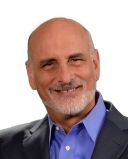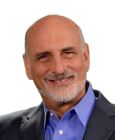Traumatic Brain Injury
NFL Players Say Pride Is Major Reason for Concussions
Avoiding concussions may require a "macho" cultural shift.
Posted March 31, 2014

Players take pride getting up after getting hit, and that's a problem.
ESPN Football Analyst John Clayton recently said during Super Bowl week the biggest challenge with concussions is “players are always going to want to get back on the field as soon as possible.” The toughness culture nurtures players’ pride about their ability to sustain hard hits. It’s this nature that is killing brain cells causing cognitive and emotional impairment and even lives.
But a “toughness” mindset is different than a tough brain. Clayton said even though scientists are studying concussions, and helmet manufacturers are advancing their protection, most people don’t realize that all it takes is a hard fall to the ground.
“One dimension that rarely gets covered is the recoil effect on the brain,” Clayton said. “It happens all the time, every game someone has one.” However, not everyone reports concussion symptoms because of the toughness mindset.
“The NFL needs stronger protocols for how they handle it,” Clayton said speaking of hard falls, hits and the machismo preventing players from reporting concussions.
During Super Bowl week, many other former NFL players spoke about their experiences with concussions both on and off the field, including Percy Harvin, offensive standout for NFL Champions Seattle Seahawks.
After sustaining a hard hit in the NFC playoff game against the New Orleans Saints, Harvin walked off the field showing signs of concussion.
“I was dazed, but wanted to come back,” Harvin said during the Super Bowl Media Day about that hit. “I was saying to myself ‘how could this happen?’” Harvin had just returned after an 11-game recovery from a hip injury. But somehow, Harvin passed the sideline assessment and was allowed back into the game, and sustained another hit. This time, the concussion symptoms were more evident and he missed the rest of the game, and the following NFC Championship game against the 49ers.
Clinton Portis, former NFL running back said during a C4CT Concussion Summit held at the United Nations in New York during Super Bowl week that getting hit hard and getting back up is a matter of pride for players.
“The pride of being a running back was having pride in colliding with the other guy and hitting them as hard or harder than they hit you,” Portis said. “But you don’t realize how hard you were hit.”
He is feeling the effects now. “I had a memory that was so crisp and now it’s not as crisp as it was. My vision used to be one of my strengths, now it’s not and I’m having migraines,” said Portis, who played nine seasons in the NFL.
E.J. Henderson, a former NFL player, said he never had a medical diagnosis of a concussion, but during the game all players “remember those hits” that cause temporary concern. “Now I notice memory loss and a short-temper and I’ve only been out of the game for two years.”
Robert Griffith played 13 seasons in the NFL said his job playing strong safety was to be an “enforcer.” In one game, Griffith said he told himself ‘we are killing each other out here.’ “
Griffith said NFL players are often looked as “heroes,” but people need to realize concussions are making them “damaged goods.”
“I think we all (former NFL players) have some short-term memory issues. I have to keep notes of everything and have my phone with me all the time,” he said. “I now know the affects of the game because after four or five years, I began to see problems among players with sleep, depression, addiction, self-worth and mood swings.”
Lance Johnstone, played in the NFL for 11 seasons only missing nine games. He was also never medically diagnosed with a concussion. “But I can’t tell you how many times I had to close one eye to see straight,” Johnstone said. “As a player, you start to accept new norms of pain. Now I’m 40-years-old and I’m scared honestly. I have brain fogginess, a memory that things just slip my mind and really have to concentrate in order to focus.”
Isaiah Kacyvenski, who a former seven-year linebacker in the NFL, said players get expert at playing with or hiding pain.
“The men who make it all the way to the NFL must become masters at masking pain,” he said. “I never wanted to speak up about any issue I felt, particularly about concussions because they are known as ‘unknown risks.’ “
After football, Kacyvenski earned an MBA from Harvard Business School, a seemingly impossible accomplishment after years of hard hits to the head.
“Losing focus is one of the most frustrating experiences,” Kacyvenski said about his studying years. “I had to battle to get through school. Was I different after football? Unequivocally, YES.”
It’s time to re-define toughness in the game. While I believe mental and physical toughness to endure hardship are great assets, the brain physiology cannot cooperate. Perhaps we will see a new era in sports where toughness means having the humility to admit your brain is more important than the game.
# # #
Harry Kerasidis, M.D is the founder and medical director for XLNTbrain, LLC, based in Maryland, specializing in cognitive neurology. Through his practice treating hundreds of concussions, he created new baseline measures, assessments, reporting tools and a 5-step recovery care plan which he folded into XLNTbrain Sport™.




